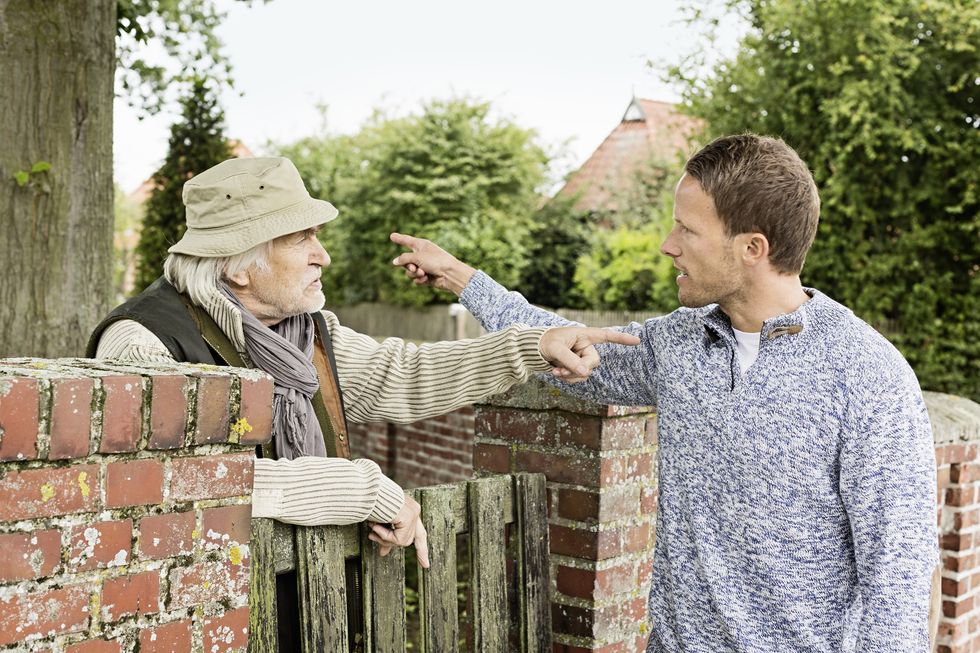A homeowner’s false claim of land ownership has sparked controversy after Greenwich Council approved plans for an extension despite an ongoing ownership dispute.
The scheme, which would create a one-bedroom flat in the garden of a Victorian house in Woolwich, South London was approved despite the applicant not owning the land outright in a “loophole” in the planning system.
The property, currently divided into three flats, is subject to shared ownership.
Neighbours raised concerns about the applicant’s claim of sole ownership, leading to a deferral of the decision in January.
 A homeowner’s false claim of land ownership has sparked controversy after Greenwich Council approved plans for an extension despite an ongoing ownership dispute (stock image)Getty
A homeowner’s false claim of land ownership has sparked controversy after Greenwich Council approved plans for an extension despite an ongoing ownership dispute (stock image)GettyThe council’s subsequent approval, based solely on the merits of the planning application, has drawn criticism from residents and councillors. The approved plans involve extending a coach house on the site of a 19th-century semi-detached property to create a one-bedroom flat.
The new home would feature a double bedroom, living room, and an entrance facing Maryon Grove at the rear of the site.
While the council approved the plans, they acknowledged that the applicant cannot proceed without agreement from fellow freeholders.
Peter Swain, a designer from Proun Architects representing the applicant, said: “I have recommended to my client that he speak with the other owners and get their agreement. I was hoping that would be in place before we got back to this committee.”
The ownership dispute came to light when neighbours contested the applicant’s claim of sole ownership. Folake Olaitan, speaking on behalf of her landlord, said: “It is, in short, a stealthy land grab which you will be permitting with this proposal.”
LATEST DEVELOPMENTS:
- Locals hit back at transgender castle owner amid claims residents ‘not ready’ for trans ‘lady of the manor’
- Neighbours throw dog poo on homeowner’s walls amid row over blocked footpath – but he claims it’s HIS land
- Neighbour row gets out of hand as pensioners end up in fist fight over shared driveway
She explained that the lease divided the building and garden proportionally between three freeholders, and the proposed extension would encroach on her landlord’s portion.
Rachel Laurent, a resident of the adjoining house, expressed little confidence in the project based on past experiences with the applicant.
She said: “Unfortunately, because he has not sought any sort of consultation with anybody, this will come to a head. This will be a nasty and bloody battle.”
Labour Councillor Calum O’Byrne Mulligan described the applicant’s conduct as ‘mind-blowing’, highlighting the growing tensions surrounding the dispute.
The council said they had to consider the scheme purely on the merits of the planning application, a process Councillor Gary Dillon later branded a ‘loophole’.
The proposal was approved with three committee members voting in favour and one abstaining.
However, Councillor Dillon said: “I don’t appreciate being lied to and I’ve been lied to by the applicant to my face, so I’m not happy with that. I think he’s been very sly with this application.”
He added that the decision highlighted “a big loophole in the planning system” and apologised to the residents in attendance.

While the council approved the plans, they acknowledged that the applicant cannot proceed without agreement from fellow freeholders (stock image)
PA
Dillon said that construction could not legally proceed without agreement from all leaseholders.
The decision has sparked concern among residents and councillors about potential future conflicts and the implications for the planning system.
Councillor Dillon said he was “lost for words” at the circumstances, apologising to residents.
Swain noted that it’s not uncommon for people to obtain planning permission for land they don’t own, stating that resolving such disputes is a civil matter between owners.